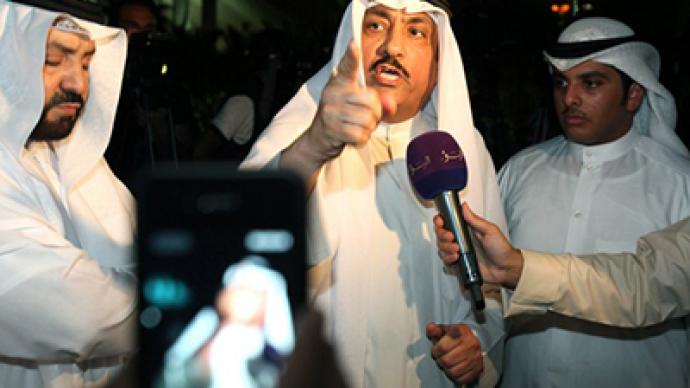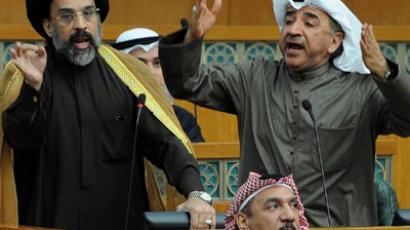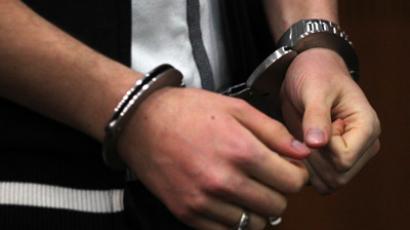Opposition arrests in Kuwait: Political standoff deepens

Three former opposition Kuwaiti MPs were ordered to be detained for three days on Friday. They were accused of politically undermining the emir by criticizing him publicly at an opposition rally, an illegal act in the US-backed oil nation.
The three, Falah Al-Sawwagh, Bader Al-Dahum and Khaled Al-Tahus, criticized Emir Sheik Sabah Al-Ahmad Al-Sabah at an opposition rally on October 10, protesting alleged government plans to manipulate election results. “Two former [Islamist] MPs, Falah Al-Sawwagh and Bader Al-Dahum, have just been arrested by the state security police," former deputy Mussallam Al-Barrak, told AFP reporters.The three MPs were questioned for nine hours by authorities before finally being taken into custody on Friday.Friday, the emir ordered the controversial law be reviewed, as the protests against the bill proposing new electoral boundaries are not abating. The demonstrators fear the government would gain advantage in the upcoming parliamentary poll if constituencies get redefined. In September, the country’s Constitutional Court already rejected the amendments to the electoral law upholding the 2006 version, which divided the country into five constituencies.Meanwhile, pro-democracy protests, fuelled by fresh fears, start turning violent. On Tuesday, four were wounded and six arrested as police used batons to disperse some 5,000 protestors angry over the political deadlock that has gripped the country for months. Sheik Sabah dissolved the Kuwaiti parliament on October 7 to prevent opposition Islamist groups from gaining more power in the government. A parliamentary election in February gave Islamists control of the 50-seat parliament. The dissolution started a 60-day deadline to hold new elections. Al-Barrak, who broke the news of the three MPs getting arrested, also violated the law by directly addressing the emir at the October 16 protest, saying, "We won't let you rule this country on your own."“We are not scared of your new batons nor the jails you have built … violence will only lead to counter-violence…Kuwaiti people will not allow the country to be governed through an autocratic rule," he told the crowd. It is illegal under Kuwait’s constitution to criticize the emir, who by law must be from the Al-Sabah family, a clan that has been in power for over 250 years. Kuwait is a member of the Organization of the Petroleum Exporting Countries (OPEC) nation and its plentiful oil-based economy make it the fifth-richest nation in the world. It is also a major non-NATO US ally, and the main hub for all US military operations in the area. The movement for government reforms has united several groups with greatly differing beliefs on how the country should proceed. There is, however, a sense of caution expressed by liberals at the agenda of the Islamists. Bassam Al-Asoussi, a member of the liberal Democratic Forum political bloc, said “Yes, the government has many shortcomings indeed, but [the opposition leaders] aren't the people who will save the country," he said, AP reports. "They are regressive, not progressive.”The emir has until December to hold new elections in the hopes that he can counter the upswing in reform sentiments. Friday he promised to annouce new election rules and the timelines of the poll in the coming days.















